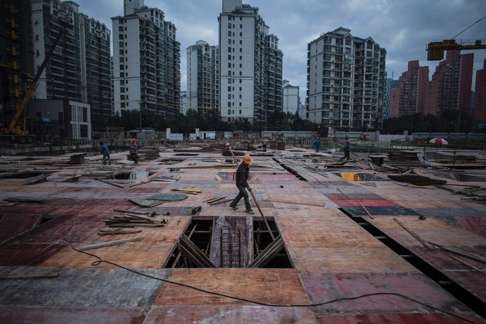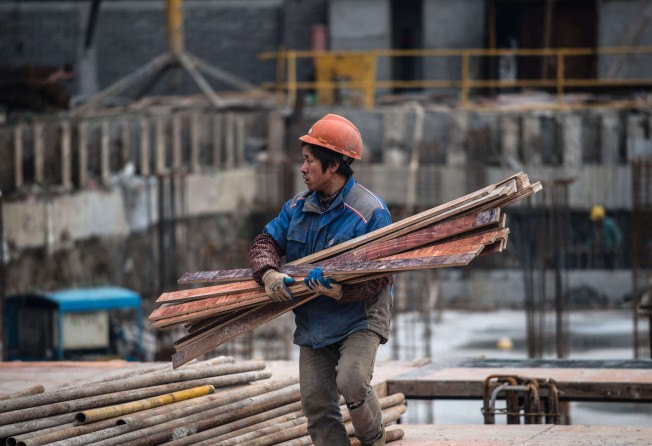
Shanghai’s November new-home prices fall for first time in 21 months as control measures bite
New-home prices in first-tier cities increase just 0.1pc after top economic meeting outlines ‘long-acting mechanism’

Shanghai’s new-home prices fell for the first time in 21 months last month while prices in Beijing halted growth as a raft of government market-cooling measures took its toll.
But a tone-setting economic meeting indicated top leaders had realised the flaws of curbing demand temporarily. Instead authorities vowed “long-term mechanism” to address the underlying imbalances.
New-home prices in Shanghai dipped 0.1 per cent from October, the first decline since February 2015, according to data released by National Bureau of Statistics on Monday. Prices in Shenzhen fell 0.3 per cent while those in Beijing stopped rising.
Of the 15 major cities that the NBS watches closely, seven saw month-on-month rises last month, a decline from 13 in October.

New-home prices in the mainland’s first-tier cities increased just 0.1 per cent, a further cooling from 0.5 per cent in October, the NBS said. Momentum in second-tier cities also slowed.
About 20 local governments rolled out a raft of tougher curbs on home-buying during the National Day week-long holiday in a bid to arrest runaway property prices and avoid a potential market bubble.
Shanghai’s month-on-month decline, though marginal, could be cited by the local authorities as their latest achievement in battling housing bubble. Shanghai late last month stepped up its tightening by raising the criteria for identifying “first-time homebuyers”; those that had a mortgage history would be considered as “second-time buyers” even if they had paid off the mortgage.
The volume of the city’s online registered transactions fell 60 per cent year on year, to the lowest level since March last year, according to the municipal home-trading centre.
Nationwide, the value of new residential sales rose 16.2 per cent year on year last month, while floor-space sold expanded 7.74 per cent, both figures showing the slowest growth this year, according to the South China Morning Post’s calculation based on data from NBS.
In the latest sign of determination to keep the tightening in place next year, the Central Economic Work Conference, responsible for setting the tone for the country’s 2017 economic policy, reiterated “properties are for residential use, not speculation”.
The statement vowed to accelerate the study of “a long-acting mechanism” for stable and healthy development of real estate, and planners would employ multifaceted policies involving financing, land and fiscal measures to curb a housing bubble.
China Research director at Savills James Macdonald compared the “long-acting mechanism” to “traditional Chinese medicine”, and the short term curbs to the “western medicine”: while the latter treated symptoms fast and effectively, the former took longer to take effect but with limited side effects.
Tospur Real Estate Consulting research director Zhang Hongwei said the “long-acting mechanism” meant accelerated legislation of a series of property taxes. However, that would not materialise next year.